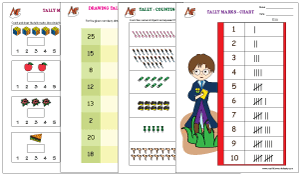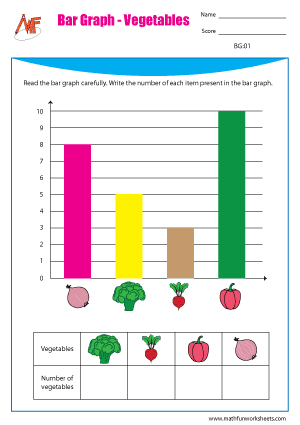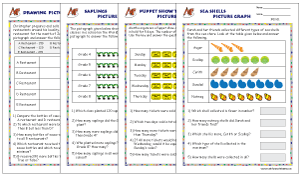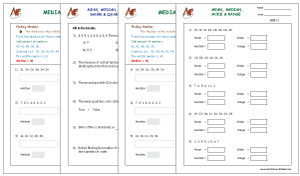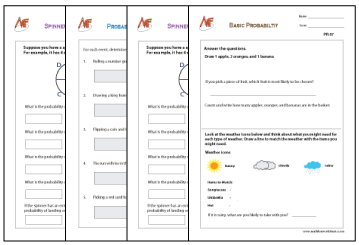- Home
- Data Handling
Browse by Topics
- English Worksheets
- Science Worksheets
- Kid's Corner
- Numbers & Operations
- Addition
- Subtraction
- Multiplication
- Division
- Decimals
- Place Value
- Roman Numerals
- Skip Counting
- Odd & Even Numbers
- Patterns
- Cardinal & Ordinal Numbers
- Rounding Numbers
- Estimation of Numbers
- Estimation of Time & Money
- Counting & Cardinality
- Comparing Numbers
- Ordering Numbers
- Fractions
- Prime & Composite Numbers
- Squares & Cubes
- Square & Cube Root
- Divisibility Rules
- Factors & Multiples
- Data Handling
- Algebra
- Ratio
- Least Common Factor
- Greatest Common Factor
- Percent Worksheets
- Proportion
- Order of Operations
- Scientific Notation
- Exponents
- Algebraic Expressions
- Evaluating Algebraic Expressions
- Simplifying Algebraic Expressions
- Graphing Lines
- Point Slope Form
- Two Point Form
- Two Intercept Form
- Equations
- Identifying Functions
- Evaluating Functions
- Function Table
- Domain and Range
- Trigonometric Charts
- Quadrants
- Polynomials
- Measurement
- Geometry
- Word Problems
Data Handling
Data Handling worksheets are valuable tools for teaching students how to collect, organize, and interpret data. These worksheets cover essential concepts such as tally charts, pictograms, bar graphs, line plots, and tables. They help students build a strong foundation in data analysis through fun, interactive exercises.
In this Data Handling section, let us all learn to gather, record and efficiently manage data. Data can be analyzed using a number of ways like Tally marks, Pie graphs, Bar charts, Line graphs, Line plots, Histogram, Frequency tables, measures of central tendency and many more. Lets start managing data.
Ideal for grades 3 to 7, these worksheets are suitable for both classroom and home learning. Teachers can use them to reinforce lessons, while parents can provide extra practice at home. Because they are printable, they are easy to use anytime and anywhere.
Each worksheet presents real-life scenarios to make learning more engaging. For example, students might analyze survey results about favorite fruits or track weather patterns over a week. These practical examples make data handling more relatable and meaningful.
Quick links to the topics listed below : Tally Marks , Pictograph
Data Handling -Types Worksheets
-
Tally Marks
View AllTally marks are a form of unary numeral system used for counting. Here are a lot of worksheets and activities to learn Tally. A frequency of data can be easily represented using Tally marks. Learn it all here.
-
Bar Graph
View AllA Bar Graph is defined as graphical display of data using rectangular bars. The bars can either be vertical or horizontal. Bar graphs with vertical bars are sometimes called vertical bar graphs.
-
Pictograph
View AllPictograph is a method of graphical representation of data or information using figures or symbols. Each symbol used here denotes numbers. Large numbers are also represented using a pictograph. In such case, a key is given to a symbol which is used to represent large numbers. Pictogaphs can be drawn horizontally and vertically.
-
Measures of Central Tendency - Mean, Median, Mode and, Range
View AllMeasures of central tendency in statistics include mean, median, mode, range, and quartiles. Separate worksheets with detailed solved examples on each topic are given for practice. Concept based word problems are included.
-
Probability Worksheets
View AllThese Probability Worksheets are designed to help students build a strong foundation in understanding and applying probability concepts through a variety of fun, hands-on activities. Suitable for upper elementary to middle school students.
In addition, the worksheets come with clear instructions and well-organized visuals. Students learn how to read and draw different types of graphs. They also practice comparing data sets, spotting trends, and making predictions. With regular practice, students improve their critical thinking and mathematical reasoning.
Moreover, many worksheets include answer keys. These help with quick grading and allow students to check their own work. This feature supports self-learning and builds confidence in problem-solving.
The variety of exercises ensures that learners remain engaged. From coloring pictograms to interpreting double bar graphs, there is something for every learning style. Visual learners, in particular, benefit from the charts and diagrams included.
To summarize, Data Handling worksheets make math fun and practical. They are easy to understand, visually appealing, and aligned with curriculum standards. Download and print these worksheets to give students the skills they need to master data interpretation in a structured and enjoyable way.

